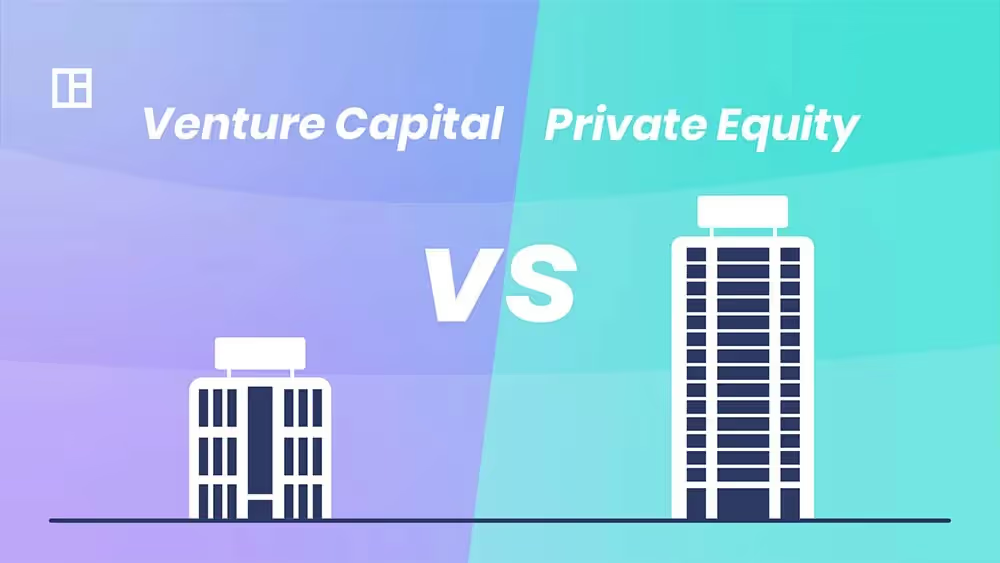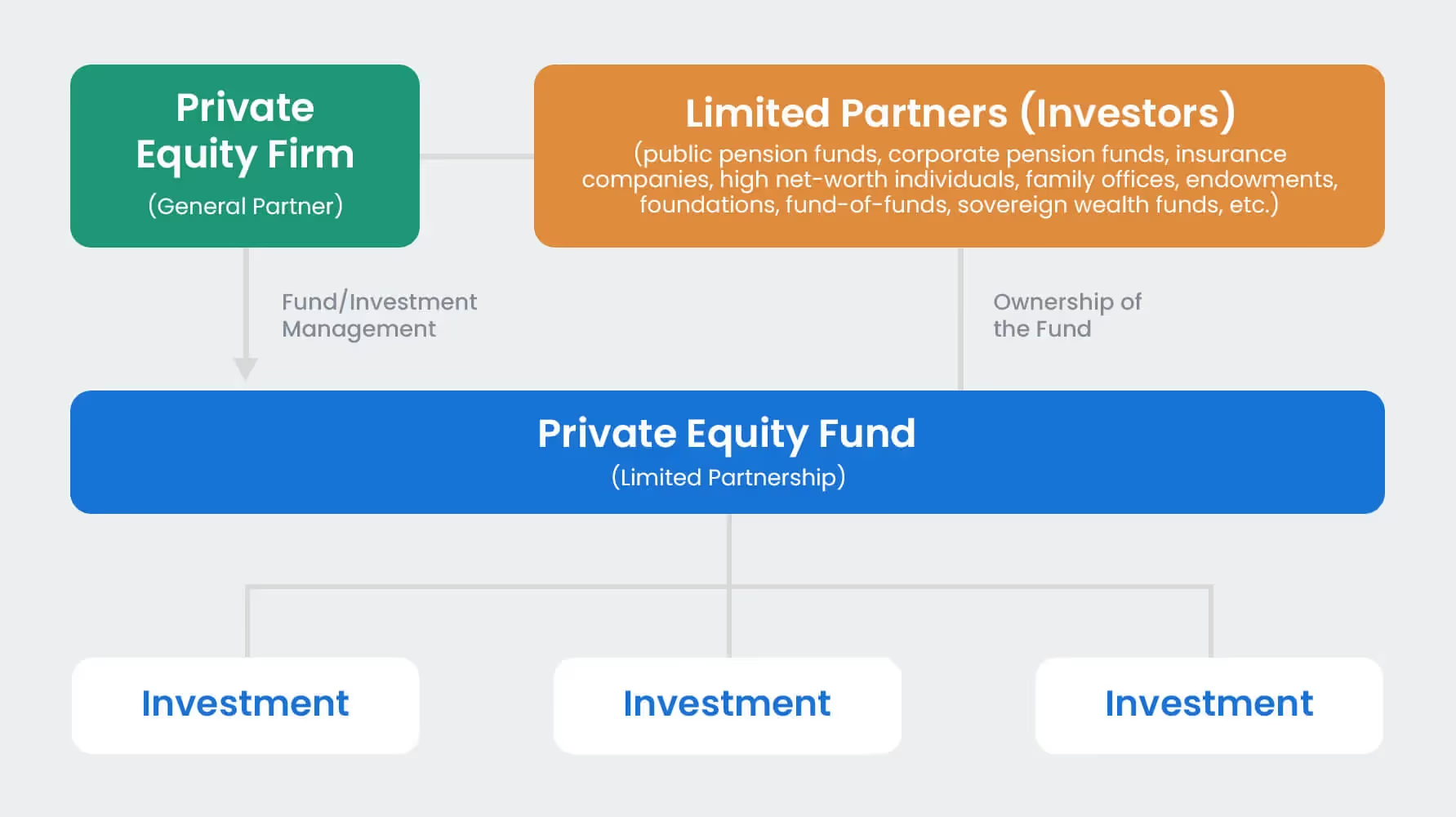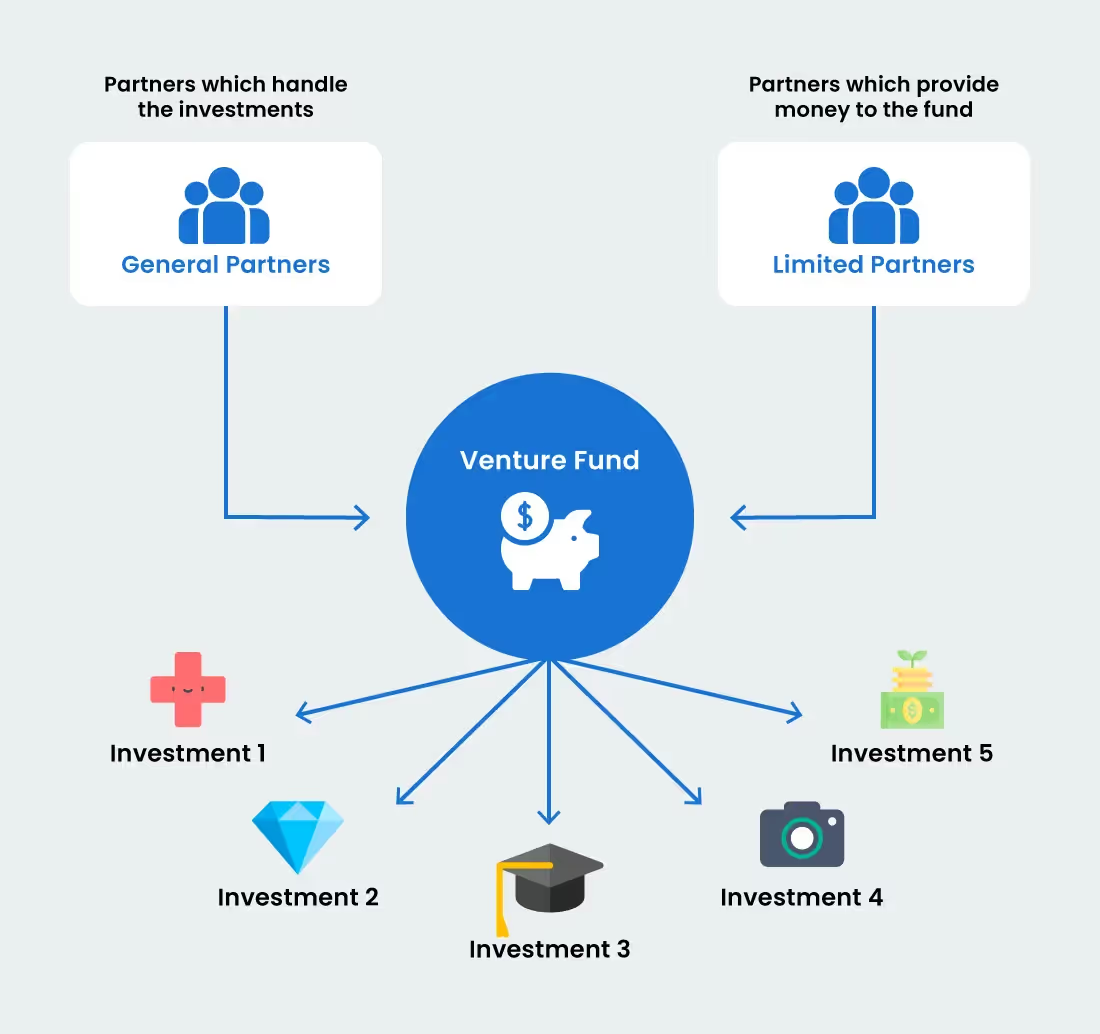Private Equity vs Venture Capital (PE vs VC): What’s the Difference?


DealRoom works with hundreds of private equity and venture capital firms in their fundraising processes, equipping them with the tools to achieve their funding goals.
In this article, we look at the differences between VC and PE - the two types of investment companies - from a number of perspectives.
What is Private Equity? (PE)
Private equity refers to investment companies that invest in non-listed (i.e. private) companies and other assets. Private equity companies have also recently begun issuing debt to these companies, taking advantage of the low interest rates that were available until now. Private equity companies are usually structured like funds, pooling the resources of investors and investing the money in companies that fit their investment hypotheses.

An investment hypotheses is an important feature of private equity companies, which rarely make opportunistic acquisitions. An investment hypothesis outlines the kind of company (i.e. location, industry/industries, profitability, size, structure) that the private equity fund aims to invest in, thereby allowing its own investors the opportunity to see whether that hypothesis fits with their personal investment philosophy.
Advantages and Disadvantages of Private Equity
Advantages:
- Experienced investors: Private equity companies are most often established by former investment bankers with well developed dealmaking skills, and proven track records.
- Less red-tape: By investing in private companies and assets, private equity companies can avoid most of the regulatory hurdles that exist for publicly listed companies.
- Larger universe of investments: The universe of publicly listed companies is only a fraction of the size of that for private companies, meaning private equity investors - in theory at least - have more to choose from.
Disadvantages
- Victim of its own success: The returns generated by private equity over the past two decades have far more money into the industry, meaning good opportunities are increasingly difficult to find.
- Longer investment horizons: Investors may have to wait several years before seeing are turn on their investment, unlike with investments in stock market companies.
- Less liquidity: Closely related to the above, private equity investments are not always easily liquidated and sometimes there may be penalties for doing so earlier than agreed.
Examples of PE-Backed Companies
The world’s biggest private equity company, measured by assets under management (AUM), is the Blackstone Group.
Blackstone hires teams of highly skilled economics and analysts to generate macroeconomic hypotheses, which it then puts into action in its acquisition strategies. One of its big plays for the past decade has been logistics: More consumption and particularly, more online retail, will be a big demand driver for logistics capabilities, Blackstone believes.
In 2020, Blackstone acquired a majority stake in the largest logistics park in Guangzhou in China. In acquiring the $1.1 billion share of the park, Blackstone increased its portfolio by approximately a third. It said at the time:“Logistics remains among our highest conviction global investment themes and we continue to see strong momentum driven by e-commerce trends.” It also meant Blackstone’s logistics empire in China expanded to 23 cities.
The acquisition was typical of large private equity deals. It backed up the hypothesis that Blackstone made about e-commerce (further backed by investing in actual e-commerce companies). It also made these investments everywhere -from North America to Europe and Southeast Asia. The acquisitions enable them to tie into long-term contacts of logistics operators (recurring revenue) and capitalize on e-commerce trends (growth)
What is Venture Capital? (VC)
Venture Capital is similar to private equity with the main difference between the two being timing: Venture Capital firms typically invest in companies in earlier stages of their business cycle than private equity. This means that these companies are usually hight growth, high risk companies, sometimes without any significant income, but whose value is based on the company’s potential to achieve much larger income in the future.

Venture Capital investments generally follows the seed capital stage, and companies are already at, or close to, breakeven. The first stage of venture capital is Series A, followed by Series B,C, and D. Venture capital rarely goes past Series D, although in theory, there is no limit to how many investment rounds can be made. However, early investors will expect a payback at some stage, and that usually curtails the investment rounds to about 4 or 5.
Advantages and Disadvantages of Venture Capital
Advantages
- Access to experienced management: VC firms enable early stage companies to tap into expert advice from experienced management teams.
- Structured business plans: By bringing VC firms on board, startups usually need to develop a structured business plan which outlines a growth roadmap for the following 3-5 years.
- Large amounts of capital: Venture Capital means that small companies, who would otherwise be unable to find capital to fund the early stages of their companies, can gain large funding to sustain their company’s ambitions.
Disadvantages
- High expense: Because of the perceived high risk of VC investments, startup founders usually end up divesting large chunks of their business to investors.
- High pressure: By bringing in institutional investors at the VC level, startup founders are increasing the pressure to achieve growth.
- Decreased control: Closely related to the last point is the fact that VC firms usually impose controls on the startup founders around strategy, use of cash, hiring, and technology - even as minority investors in the business.
Example of a VC-Backed Company
The example of Airbnb, the $70 billion hospitality industry behemoth is a good example of how VC works, and the kind of companies, people, and ideas that the VC industry can get behind. The company’s early days are now legion. The idea was so outlandish that many investors said that the company would never work. After founding in 2007, the company arranged seed funding in 2009 from Sequoia Capital, valuing the business at $2.4 million.
In 2010, Airbnb announced that it had achieved its first Venture Capital investment - a $7.2 million Series A investment from Greylock Partners and Sequoia Capital. Suddenly, people were beginning to sit up and take notice of a company that seemed like a pipe dream not long before (a common feature of VC firms). The company now had 700,000 individual bookings, over 80%of which were made in the previous six months. It was growing, and fast.
Here is where it might be helpful to understand one of the key differences between Venture Capital and Private Equity. Before Airbnb reached an accumulated 1 million bookings in 2011, it was too risky for private equity investors - still just a concept in most PE investors’ eyes. But with scale, it was suddenly a viable business. By 2014, although still considered a startup, it received investment from a private equity company - TPG investments.
What are the differences between PE and VC?

Similarities between PE and VC
Private Equity and Venture Capital firms ultimately have the same goals - return on investment - they just differ on how to achieve it. The example of Airbnb showed that this can often see them cross horns on the same companies either at the same time or slightly removed in time. Clearly, there are several similarities between the two.
Similarities between PE and VC include:
- Career paths: Both private equity and venture capital offer quite similar career trajectories which often seem professionals move between both.
- Exit plan: With Private Equity and Venture Capital, there is usually an exit plan for investors (typically around 5 years) for them to liquidate the investment.
- Structure of companies: Private Equity and Venture Capital firms are often similarly structured, with money being contributed by outside investors and those within the companies themselves.
- Investment cycles: Prices (and multiples) in both Private Equity and Venture Capital tend to move largely in tandem, irregardless of the opportunities available in each market.
PE and VC Capital Raising Resources - How Can DealRoom Help
As mentioned at the top, DealRoom has vast experience of helping Private Equity and Venture Capital firms with their investment process.

- We also work on the other side, helping early stage through to mature companies to successfully fundraise. Experience in both fields has enabled us to develop a treasure trove of resources for practitioners in both fields.
- In due diligence, we regularly help Private Equity and Venture Capital practitioners on both the buy and sell side to navigate the often complex process.
- In fundraising too, we have expertise in both Private Equity and Venture Capital, with a recent deal of one of the companies, Pax8, on DealRoom raising in excess of $50million. Our materials can also enlighten practitioners about the best deal structure for their deal, again, whether they’re in PrivateEquity or Venture Capital.
To understand how to improve your fundraising, restructuring and other PE or VC deal management efforts, talk to us at DealRoom today.
Wrap Up
A curious fact is that senior bankers who leave investment banks often ponder whether to begin Private Equity or Venture Capital firms.
This tells us much about the similarity between the two, the benefits they provide, and the knowledge required to make them a success. Another thing that successful firms in both industries have in common is the use of virtual data rooms.
Talk to DealRoom about how our virtual data room and deal management solutions can help you, regardless of which of the two forms of investment your company falls into and get a free quote today.
Get your M&A process in order. Use DealRoom as a single source of truth and align your team.







.avif)


.png)
.png)
.png)
.svg)

.svg)
.avif)


